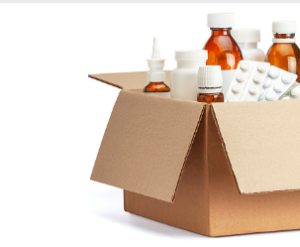Recycling plastic water bottles is an efficient way to conserve natural resources, with one ton of recycled plastic saving 3.8 barrels of oil – an invaluable nonrenewable resource with limited reserves.
Plastic water bottle recycling reduces greenhouse gas emissions as it requires less fossil fuels and energy consumption and lessens waste going to landfills and our water sources.
They Save Energy
Using plastic to produce new bottles requires far less energy than regular manufacturing processes, thus relieving power grids of some work and decreasing fossil fuel usage – both greatly benefit our environment as greenhouse gas emissions contribute to global warming.
Many water bottles are composed of polyethylene terephthalate (PET or rPET), commonly referred to as PET or rPET. When recycled, PET can be made into many items, including polyester carpet fibres, T-shirts, automotive strapping material and industrial foam; these are just some examples among thousands produced from PET.
Shop rPET recyclable packaging generates fewer greenhouse gases, thus lessening its environmental impact and making recycling all your plastic bottles and jugs an important step towards environmental protection. It underscores why recycling should remain an integral component of everyday life.
Recycled bottles also help save space in landfills and on roadways – an important consideration given that our country’s landfills are often at capacity. Furthermore, recycling plastic bottles helps prevent additional trash from entering our oceans; by recycling plastic bottles and jugs, you can help to ensure their continued cleanliness.
They Save Money
When placed into a recycling bin, your empty water bottle goes through a complex recycling process, from shredding the plastic and reforming it into pellets to being sold to companies for various products. New plastic production consumes energy; recycled plastic saves 66 percent compared to virgin production!
Save money and help the environment by not purchasing as many single-use plastic bottles for water or beverages that you consume, thus helping save money in the form of reduced plastic consumption. Plus, recycling creates jobs – every job created in waste management creates four more jobs in recycling!
They Reduce Pollution
Plastic bottles are one of the most frequently found pieces of ocean debris, serving as an emblem of human environmental degradation that we all contribute to. Recycling helps prevent these bottles from ending in nature as waste products.
When you drop off plastic bottles at your curbside recycling bin, they are transported to a materials recovery facility, separated from other recyclables such as paper and glass. Plastic is then separated according to type before being cleaned of food residue before melting down and shaping into new bottles.
Recycled plastic bottles can be transformed into various products ranging from fences and park benches to new plastic bags and bottles, helping reduce our reliance on natural resources such as oil which we are depleting faster than we are replenishing while saving energy as it only requires two-thirds as much energy to recycle plastic than it takes to create them from scratch.
Not all plastics are created equal, however. High-density polyethylene (HDPE, or #2 plastic) and polyethylene terephthalate (PET, or #1 plastic) are two different resins used for different applications; therefore, it’s wise to familiarize yourself with your local recycling rules to know which bottles you can recycle at home.
They Create Jobs
 Shop rPET recyclable packaging is a thriving industry. Over 3,500 workers are directly employed by this process in North and South Carolina alone, jobs that convert bottles and plastic into products like carpeting, clothes textiles and plastic lumber. The Carolinas Plastics Recycling Council’s “Your Bottle Means Jobs” video offers more information.
Shop rPET recyclable packaging is a thriving industry. Over 3,500 workers are directly employed by this process in North and South Carolina alone, jobs that convert bottles and plastic into products like carpeting, clothes textiles and plastic lumber. The Carolinas Plastics Recycling Council’s “Your Bottle Means Jobs” video offers more information.
When recycling a plastic water bottle, it will go to a recycling plant to be sorted and cleaned for any food debris, paper labels or other contaminants that could compromise its new product form. Finally, it’s chopped up and melted so new bottles and other items can be produced.
Plastic bottles can be recycled into many products, from new water bottles and t-shirts to industrial strapping and fiberfill for sleeping bags. One plastic bottle alone may yield as many as 15 products after recycling!
Plastic industries strive hard to utilize more recycled materials in their production process, and companies are dedicated to processing used plastics into new products. Recycling benefits everyone involved – while landfills or incinerators may create jobs temporarily, they waste energy, water, labour and natural resources needed for making those bottles, which isn’t good for anyone involved.